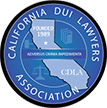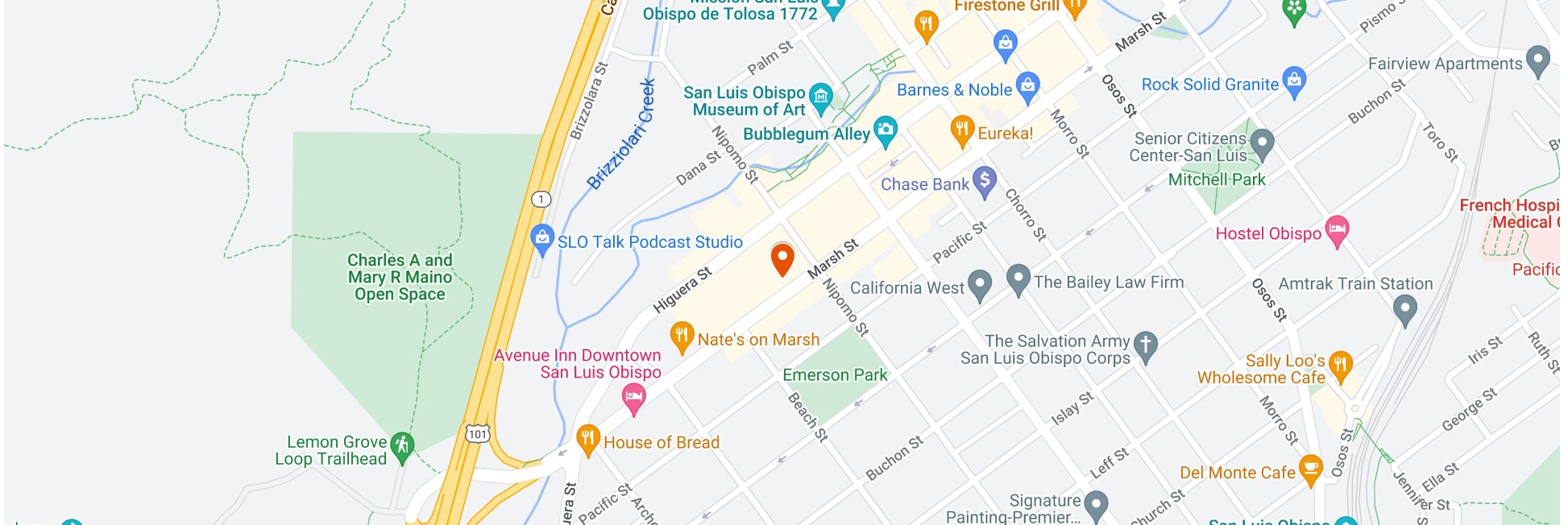DUI is considered a serious offense in the United States, and even more so in California. California handles DUI charges seriously because the state has seen a sharp rise in fatalities in car accidents that have resulted from driving while intoxicated. If you drink and drive, the chances of causing an accident are high. Depending on the severity of your accident, you could face additional charges if you leave the accident scene.
If you or your loved one is charged with a DUI and hit and run, contact a defense attorney to defend against both of those charges. We, at San Luis Obispo DUI Attorneys, have a team of professional DUI defense lawyers that you can rely on.
An Overview of a DUI Hit-and-Run
A DUI hit-and-run offense occurs when a driver is impaired by alcohol or drugs, causes a crash, and then flees the scene. In such a circumstance, the defendant will have perpetrated the crime and could be charged with two offenses:
- Hit and Run
- DUI
Hit-and-Run
Even when no alcohol or drugs are involved, hit-and-run is itself considered a serious offense. This act is illegal as stipulated under California VC 20002a. Hit and run occur when a motorist causes or is involved in an accident and then leaves the scene without taking any action. Any accident, involving collisions with animals, vehicles, stationary objects, and other properties, counts here. When this occurs, and the driver flees the crash scene without proving his or her details or helping anyone who might want assistance, they could be charged with the offense.
According to California law, after being involved in an accident, a motorist should undertake the following:
-
The motorist should seek out the owner of the car or property they collided with or hit as soon as they can, if at all possible.
If the motorist is found, share and exchange details with him or her if requested. In this situation, you should include your license, address, registration, and insurance details -
If the property or vehicle owner cannot be reached at that time, for example, if the vehicle you bumped into was parked, you could still leave your contact information so that the owner can get in touch with you later.
This could be done by leaving a written note containing all your information, including your address and name. In addition, the motorist is required to contact law enforcement officers and report the accident
DUI
DUI, well known as driving under the influence, is one of the most serious offenses, attracting harsh penalties and consequences that can have a significant impact on your life. The crime itself is considered a serious offense even if it does not lead to an accident. DUI is normally charged as a California misdemeanor crime. However, if the defendant has a similar past conviction or if there was an aggravating factor such as injuries sustained, damage to property, or loss of life, then it would be charged as a felony.
If a motorist is facing charges of DUI for the first time and didn't cause the accident, they would spend a few days in police custody at most and pay fines. However, they are still subject to a six-month driver's license suspension, which is challenging for people who must commute daily to and from work and run errands.
If, on the other hand, you caused serious injury to another individual while DUI or you're facing a 2nd, 3rd, or 4th DUI charge, you could be sentenced to prison for 5 years or more, depending on the gravity of the crime.
Additionally, or in part of the sentence, you would be required to pay additional fines of no more than $100,000. The worst-case scenario is losing your right to drive for the rest of your life. If the DUI was severe, there would be additional necessary restrictions, such as the installation of an Ignition Interlock Device (IID) in the accused's vehicle.
DUI Paired with a Hit and Run Offense
Both hit-and-run and DUI are serious offenses in California. When they're combined, the defendant could spend a significant amount of time in prison, pay bigger fines, and suffer more serious repercussions that will have an impact on many facets of their life. In the event of a collision, the driver must fulfill certain obligations regardless of whether they were drunk driving or not.
This is especially true if the collision causes property damage, physical injuries, or a fatality. These obligations include remaining at the scene of the crash till it is fit to leave. After waiting, you must provide your identifying information, make sure that anyone injured is cared for, and make sure that everyone else is well. It is preferable if you promptly notify law enforcement personnel about the collision.
However, in cases of hit-and-run, the motorist leaves without waiting to be found responsible for what transpired. Most drivers become anxious because they believe they'll be held accountable for the collision, particularly if they had been driving while intoxicated.
They decide to leave the site of the crash as soon as it happens to avoid the consequences of being responsible for the collision and operating a vehicle while intoxicated. Sometimes those who commit hit-and-run crimes flee since they lack insurance or are concerned that the insurance premiums will go up.
Hit-and-run coupled with DUI could also occur for the same reasons mentioned above. A driver may choose to leave the site of the crash before aiding the afflicted out of apprehension of being stopped for DUI and then being charged with further counts.
Other times, a driver may be so intoxicated that they are uncertain of their role in the accident. When he or she leaves the scene, the motorist will be detained for DUI Hit and Run regardless of whether they were conscious of the accident. They would be subject to penalties for both offenses when found guilty.
Typically, when a matter is in court, the sitting judge does have some or absolute discretion in deciding the punishment for the offense committed. This must be carried out within the parameters of the relevant law. The judge will, nevertheless, decide on the extent of the penalties.
Then, based on the specifics of your case, you can be subject to several DUI hit-and-run fines. It should be noted that there are very few chances for a reduced sentence because the case entails a hit-and-run. Your case may even result in higher penalties for both violations.
DUI Hit-and-Run Penalties
If a motorist is charged with Hit and Run with DUI, they may face harsh penalties such as fines and prison time. There are primarily two types of charges that they could be subject to:
- Property damage from a hit-and-run in violation of Section 20002 of the California VC
- Hit-and-run with bodily injury as defined by Section 20001 of the California VC
If your arrest involves one of the following two kinds of charges, keep the following in mind:
- You could still be prosecuted for Hit and Run charges even if you weren’t at fault for the incident. Even if the other driver or pedestrian was responsible, you risk facing Hit and Run allegations if you leave the accident site. Everyone who is engaged in an automobile collision is mandated by the law to stay at the scene of the crash and share the relevant details
- If the crash led to injuries or damages, you should provide your information even if the individual wounded was riding with you inside your automobile. This must be undertaken even if the wounded individual does not wish to submit a police report
- If you're going to seek medical assistance, you could be permitted to depart from the scene following an accident. If this happens, you won't be charged with Hit and Run. In California, this type of offense can be prosecuted as either a felony or misdemeanor
Misdemeanor Hit and Run under California VC 20002
The following criteria should be satisfied for a hit-and-run offense to qualify as a misdemeanor offense:
- The motorist purposefully fled from the scene of the accident without giving the necessary personal identification details to all individuals implicated in the collision
- The ensuing accident resulted in damage to the property
- The motorist was fully cognizant that they were at fault for the collision and also that other people's property had been destroyed
This offense is charged as a misdemeanor if it entails property damage. A hit-and-run incident would be considered a felony when it caused another person physical harm
The law will still qualify even if the resulting degree of damage from the accident was minor. Property damage in this situation might not just entail another car. It might refer to any other damaged property, such as a building.
Misdemeanor Hit-and-Run Penalties
Although a misdemeanor charge might not seem serious, the penalties for hit-and-run could be very harsh. In most circumstances, the penalty will be based on the extent of damage caused by the incident. In most cases, the sentencing will be as follows:
- Not less than 6 months behind bars
- Monetary penalties of not more than a thousand dollars
- A fine as well as a jail sentence
- A three-year maximum probationary period
- Your driving record will now have two additional points
- The obligation to pay restitution for lost or destroyed property
Felony Hit-and-Run Offense as Per California VC 20001
Felony hit-and-run incidents take place when a motorist causes a car accident that leads to physical harm to another individual or persons, then leaves the scene of the accident. This offense will include the following elements:
- Deliberately leaving the scene of an accident without providing the parties involved with your identifying information
- The motorist or another motorist's negligence led to an accident that injured another person or several persons
- The motorist was aware that there had been a collision and that someone else had suffered injuries
Be aware that while some incidents only lead to property damage or injuries, others lead to both. The driver might be charged with both a misdemeanor and a felony for hit-and-run in such situations, based on the ruling court and the extent of the destruction caused by the crash.
In some cases, a hit-and-run act that caused physical harm can be prosecuted as a misdemeanor offense. Again, everything is dependent on the prosecution and whether the injuries were serious and challenging to establish.
Felony Hit-and-Run Penalties
The following penalties are feasible if the charge meets the criteria to be considered a felony:
- Fines that could be anywhere from one thousand dollars to ten thousand dollars
- Incarceration for a maximum of three years in California state prison. If the accident caused death or significant bodily harm, the potential prison sentence could be increased.
Penalties for DUI Hit-and-Run
Most drunk driving charges are misdemeanors. Nevertheless, it could be considered a felony if aggravating circumstances like leaving the scene of the accident, causing property damage, or injuring another person is present.
Since a hit-and-run that involves a DUI inevitably includes two aggravating circumstances, the offense counts as an aggravated DUI and will likely be charged as such.
This implies that in addition to being accused of hit-and-run, you will also be accused of DUI, which will result in harsher punishments. On top of the hit-and-run charge, you may face the following DUI penalties:
-
DUI causing bodily harm as a misdemeanor crime is punishable by:
- Fines ranging from $350 to five thousand dollars
- A three- to a five-year probationary period
- Your driving license will be suspended for 1 to 3 years
- Restitution paid to those who were affected
-
Felony DUI causing bodily harm, punishable by:
- Fines ranging from one thousand dollars to five thousand dollars
- A maximum of four years imprisonment in a jail or prison. If the incident caused major physical harm, the length of incarceration would be enhanced
- A strike could be issued under the state's three-strike law
- Suspension of the driver's license for a maximum of five years
Legal Defenses for Hit and Run
Working collaboratively with an experienced DUI attorney is essential if you're facing charges for both DUI and hit-and-run to have one or both charges dismissed or minimized. Otherwise, you could be subject to very harsh punishments that could have a long-term negative impact on your life.
Your defense attorney can utilize the following approaches to defend you against hit-and-run accusations:
There was no Damage to the Property
Whenever an accident happens, another car is usually damaged. Nonetheless, there are also cases in which a hit-and-run accident merely results in damages to the motorist's car. You will only be considered responsible if another individual's property or car was destroyed as a result of your actions. You might not be charged with Hit-and-Run if your lawyer can show that it was only your car that sustained damages in the event.
The Driver was Unaware of the Accident or the Extent of the Damage Caused
A key component of the offense is that the offender purposefully fled the site of the accident. The prosecution might not hold them accountable for that crime if they were unaware of the accident that resulted in some damage.
A skilled attorney might persuade the courts that the defendant was unaware they had inflicted property damage. You will be exonerated of your Hit and Run allegations if this defense strategy is successful. However, if the ensuing damage was substantial, this argument will not be effective.
There was no Negligence on the Part of the Defendant.
In this situation, your lawyer will work to establish that you weren't not operating the vehicle when the accident happened. Now and then, individuals let others drive their vehicles. There are cases where stolen cars cause accidents and then depart the accident scene.
Even though your car was implicated in the incident, if you can persuade the jury that you weren't driving it at that moment, you might not be found guilty of the offense.
Other Legal Defenses for a DUI Hit-and-Run
There are additional viable defenses that a competent lawyer will employ to reduce the penalty for your DUI accusation. Some more examples of uncommon events that can be used as a defense strategy include:
- If you suffered injuries or passed out due to the intense impact and your passenger dragged you out of the vehicle before fleeing the scene,
- If you're involved in a crash on a highway without accident lanes, you should have driven to the nearest exit ramp before pulling over to call the police.
- If another motorist bumps into you during a road rage encounter and stopping would jeopardize your safety, you can try to flee before notifying the police about the accident.
Find a San Luis Obispo DUI Defense Lawyer Near Me
Both DUI and hit-and-run are serious charges in California. If you are convicted of these acts and other similar felonies, you might spend a significant amount of time behind bars. And if that weren't bad enough, you might permanently forfeit your driving rights. You need a knowledgeable DUI defense lawyer to represent you before the court and provide advice and counsel.
We at San Luis Obispo DUI Attorneys have the knowledge, expertise, and resources necessary to assist you with your case and formulate a strong defense. With the right strategy, we could help you achieve a favorable outcome for your case. Give us a call at 805-321-1000.







